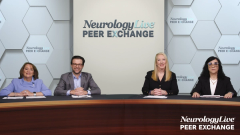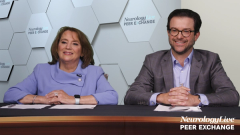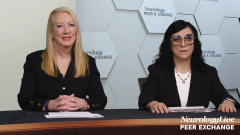
Concluding Thoughts on Biosimilars in Multiple Sclerosis
Amy Perrin Ross, APN, Patricia Melville, NP-C, Aliza Ben-Zacharia, PhD, DNP, ANP-BC, and John Kramer, PA-C share their advice for facilitating uptake of biosimilars in clinical practices.
Episodes in this series

Amy Perrin Ross, MSN, MSCN, APN, CNRN: This has been a really good discussion…. I’d like to ask for any final thoughts that you might have with respect to anything we’ve discussed, with respect to biosimilars, with respect to clinicians, patients, whatever final thoughts you might have. Aliza, let’s get started with you.
Aliza Ben-Zacharia, PhD, DNP, RN, ANP-BC, FAAN: I think that as we discussed today, thinking about biosimilars, I definitely have a different thought about biosimilars after I researched some of the data in the studies that have been done with different diseases. My comfort zone is a little better than when I started. I’m not at 100% yet, but I think I would love to see real-world data, and we all are responsible for that. I think Pat mentioned earlier, [we should] collaborate with oncology professionals. I think we should probably even broaden our collaboration with RA [rheumatoid arthritis] professionals, or anyone who has experience with biosimilars. It would be nice to sit at the table and have an advisory meeting, for example, about biosimilars with different disease entities. I think that would be fabulous. I remember an experience where I had a collaborative advisory meeting with OB-GYN [obstetrics-gynecology] and we, as neurologists, because we were trying to think about pregnancy and issues in pregnancy. I think that collaboration helped so much to talk about different issues and collaborate between different professions. I remember it and it was so many years ago, but I think that’s something that we can do. I think biosimilars have a room in MS [multiple sclerosis], and I think it will increase access to care…and patients will be able to get the medication hopefully at a lower cost. I think it’ll open some doors, but as clinicians, we need to [rigorously] monitor the safety and efficacy and immunogenicity of the medication and make sure that they are really indeed equivalent and then educate patients and ourselves. I think those will be the important principles that I see.
Amy Perrin Ross, MSN, MSCN, APN, CNRN: Great. Thank you. How about you, John?
John Kramer, PA-C: Well, I would say that one of the most exciting things about the biosimilars that we’ve learned is that there’s already this regulatory framework through the FDA that’s in place. I think that that will just add to a growing level of confidence as it relates to these molecules, as more and more of these biosimilars come to the market for patients with MS. It feels different than the authorization of other newer molecules that are new from a mechanistic standpoint. At least we have a comfort level with the mechanism of action of these biosimilar molecules already with that important regulatory framework in place already from the FDA for other biosimilars and other disease states.
Amy Perrin Ross, MSN, MSCN, APN, CNRN: You bring up a good point, John, and that is, I think a lot of us have been under the misconception that, oh, biosimilar, rubber stamp, it’s approved. Oh, no, we have all learned, there’s an incredibly rigorous process. And I’m like you, I’m [excited] to know that there is a very rigorous process, not only within the FDA but within the Canadian regulatory authorities as well as the EMA [European Medicines Agency] moving forward. So with that, I would have a lot of confidence. How about you, Pat? Some closing thoughts and additional things.
Patricia Melville, MSCN, RN, NP-C, CCRC: I agree with what John and Aliza had to say. I think that biosimilars are inevitable, and I think it’s our duty and our responsibility to educate ourselves so we can educate our patients. I think all of us here agree that one of our roles, which I view as being very important, is being a good advocate for my patients. And so, making sure that we’re becoming familiar with these products as we’re prescribing them and that the patients are receiving the best possible treatment is a role I take very seriously. I think, again, education is critically important.
Amy Perrin Ross, MSN, MSCN, APN, CNRN: I have to agree with you, biosimilars are inevitable, that’s why we’re here today. But I think [it’s important that we are] educating ourselves the way we have with this discussion, and educating our audience, those of you who are out there listening and watching this presentation, so that we can better inform ourselves, and so we can better inform our patients, so that this becomes not just inevitable, but a very positive step forward in the care of patients with multiple sclerosis.
Thank you for watching this Peer Exchange. If you enjoyed the content, please subscribe for our e-newsletters to receive upcoming Peer Exchange episodes and other great content right in your inbox.
Transcript Edited for Clarity
Newsletter
Keep your finger on the pulse of neurology—subscribe to NeurologyLive for expert interviews, new data, and breakthrough treatment updates.













